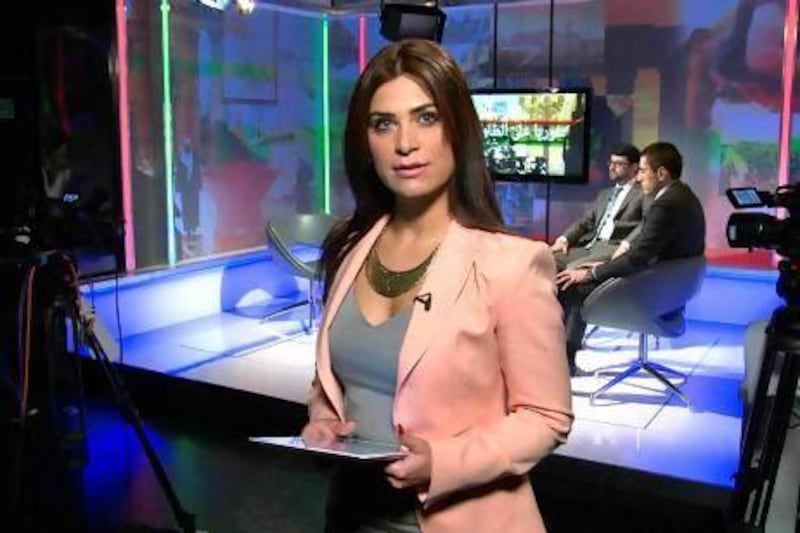When Halla Diyab was a teenager living in Syria, she met a famous author and showed him some of her stories, which she wanted to turn into films. The reaction she got was unexpected. "He really made fun of my writing," she says. "He didn't encourage me."
Two decades later, Diyab - now living in Leicester - is one of the Middle East's most acclaimed TV writers, with her own production company, Liberty Media Productions, and a shelf full of awards. She was once asked by Muammar Qaddafi to write a film script about Italy's colonisation of Libya. Although she nervously complied, it was never made.
Diyab moved with her family from Syria to France at the age of 16 and then went to England, where she was awarded a BA and MA in gender studies from the University of Warwick and a doctorate on racial minorities in drama and film from Leicester University. In 2005, she wrote a sample script and was commissioned to write the 30-episode soap
Hur Al Ain
(Beautiful Maidens), about Islamic terrorists scheming to blow up a compound in Saudi Arabia. The title refers to the virgins promised to martyrs, according to the Quran.
"I was presenting the challenges that women face in Saudi Arabia," she says. "It was a difficult issue to tackle in drama, especially from the perspective of a female writer. [People] think you are writing about yourself." The show was broadcast on MBC during Ramadan and was successful enough to change Diyab's life. She was offered a presenting role on the Egyptian talk show
Lady of Ladies
and found herself becoming a media spokesperson for liberal Islam.
Several other TV commissions followed, including
Ma Malakat Aymankum
(Your Rightful Disposal), about rebellious women who oppose the burqa, which was broadcast on channels across the region, including Abu Dhabi TV, in 2010. She wrote, directed and produced several documentaries and her latest series,
Under the Nation's Sky
, which was broadcast this Ramadan, addresses the continuing Syrian crisis, focusing on female victims of violence. She's currently working on her first fictional feature film, about the failure of the Arab Spring "to really fulfil the minimum rights of humans", and on her second book.
"In the Middle East or across the world now," she says, "you can't even reach in your imagination the atrocities and injustice that are happening in real life. [Writers] need to be the voice of people who cannot express what they go through."
Things have got better for women writing and producing TV in the past five or six years, Diyab says, but channels are still run by men at the top levels. It's easier in independent film, which is less reliant on advertising money and on the approval of network executives - but then film audiences are much smaller than audiences watching TV during Ramadan.
Even when writing for television, she was never tempted to tone down her scripts. "I believe that it's my duty as a writer to highlight the problems we have as Muslims," she says, "and it needs the courage of someone to take the first step. I believe in the power of drama to push for social reform."
Follow us on
[ Facebook ]
for discussions, entertainment, reviews, wellness and news.
Follow us
[ @LifeNationalUAE ]





